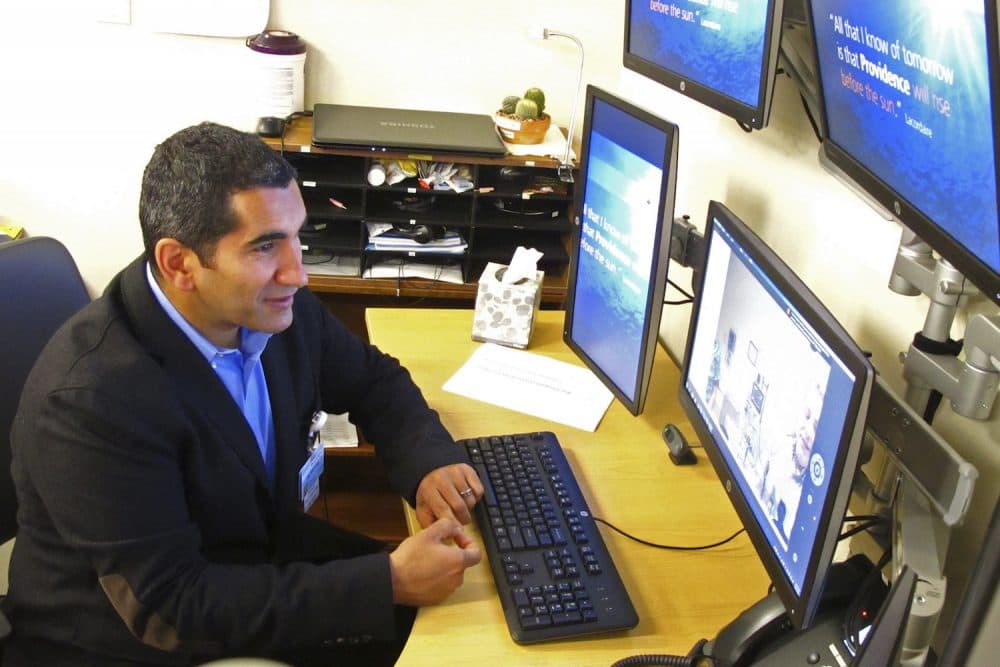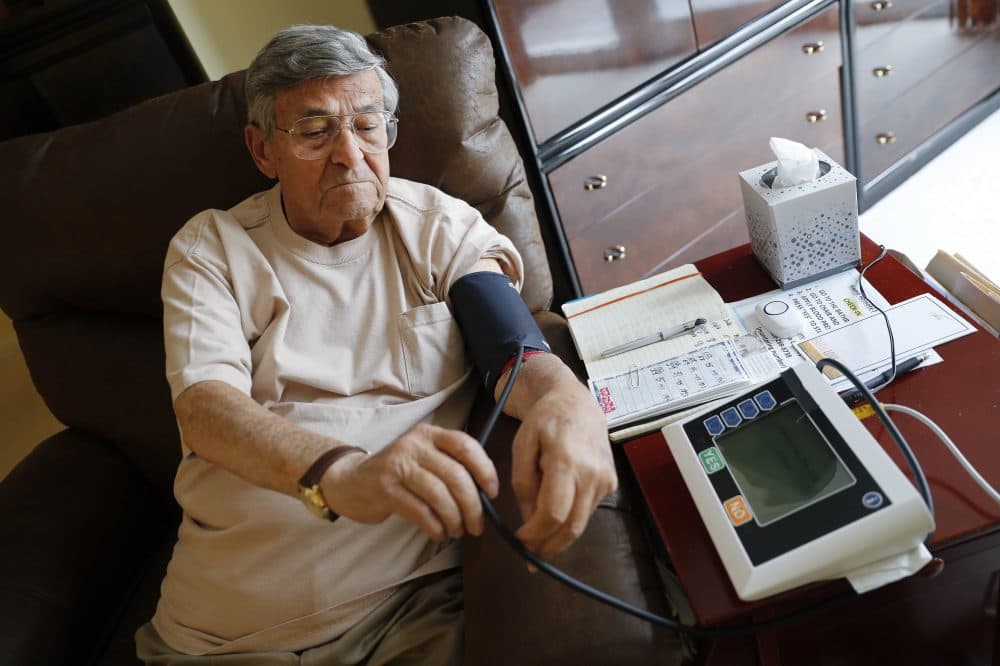Advertisement
Telemedicine: The Doctor Will See You Now (Via Video Call)
Resume
With Robert Siegel
Telemedicine as the new house call is getting more traction and patients. Is it good medicine?
Guests:
Lauran Neergaard, Associated Press medical writer.
Dr. Ingrid Zimmer-Galler, executive clinical director, Office of Telemedicine, Johns Hopkins Medicine. Associate Professor of Ophthalmology, Johns Hopkins University
Larry Van Horn, associate professor of management and executive director of health affairs at Vanderbilt University’s Owen Graduate School of Management.
From The Reading List:
Associated Press: "Skyping the doctor? Poll shows it's not just for the young" — "Every morning, 92-year-old Sidney Kramer wraps a blood pressure cuff around his arm and steps on a scale, and readings of his heart health beam to a team of nurses — and to his daughter's smartphone — miles from his Maryland home.
Red flags? A nurse immediately calls, a form of telemedicine that is helping Kramer live independently by keeping his congestive heart failure under tight control.
'It's reassuring both psychologically and physically. The way he's put it to me, it's like having a doctor appointment every morning,' said Miriam Dubin, Kramer's daughter.

The vast majority of older Americans and their caregivers are ready to give virtual health care a try: Nearly 9 in 10 adults ages 40 and over would be comfortable using at least one type of telemedicine for themselves or an aging loved one, says a new poll from The Associated Press-NORC Center for Public Affairs Research.
But they want to make sure that an e-visit or other remote care is just as good as they'd get in person, and that their health information stays private, according to the survey released Thursday.
Long considered an option mainly for improving access to health care in rural areas with few doctors, telemedicine is gaining ground with tech-savvy younger consumers — they text their physician with questions or Skype with a mild complaint. For seniors with chronic illnesses or mobility problems that make simply reaching a doctor's office an ordeal, telehealth could be more than a convenience. The graying population is raising serious questions about how the nation will provide enough quality long-term care."
A recent survey asked people whether they’d be comfortable receiving some form of telemedicine, or using it for someone they’re caring for. Most said: yes. Is FaceTime with the doc the way of the future? If so, how might that change the doctor-patient relationship? Does it make sense in cities where doctors are nearby, or just in rural areas where a specialist might be many miles away?
This hour, On Point: Telemedicine and some new research about breast cancer treatment.
- Robert Siegel
This program aired on June 6, 2018.